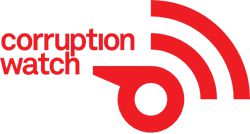Zondo calls for 'swift' action against SAX/NW project looters - final report

Although not explicitly naming all individuals who should face prosecution, the first part of the commission’s report, penned by chairperson Acting Chief Justice Raymond Zondo, decries the lull in action over the matter, which has been the subject of a police investigation since 2018 and litigation since 2016. Seven witnesses testified on the project in mid-2019.
“One of the extraordinary features of the investigation was that, at the time that the commission began investigating the allegations, a criminal complaint had already been lodged with the authorities in 2016 – three years before the commission began investigating the matter,” Zondo writes in the 874-page report.
“By 2019, a criminal investigation was underway and High Court litigation had been instituted. However, despite all of these steps, by the time that the commission heard evidence emanating from this investigation in June 2019, the criminal process had not gained any substantial momentum and the litigation had not advanced matters.”
Some background
In 2014, the North West government embarked on a process to recapitalise and commercialise its two airports, Mahikeng and Pilanesberg, at a cost that was found by the commission to have been excessive, and not budgeted for by the provincial department of transport as project leaders.
Instead of the department going out on an open tender, a collective of various provincial department heads and MECs, as well as the office of then premier Supra Mahumapelo, was to have the final say on which service provider would be appointed, following presentations from several companies sourced by the department. The legality of this process was the first red flag for Zondo.
State-owned SA Express (SAX) was the preferred company, despite being the most expensive bidder at an astronomical service cost of R110-million, over R100-million more than the average presented by the other three finalists, Continental Aviation Solution, Challenger Air and SA Air-link.
On the basis of a memorandum prepared by the then head of the transport department, Bailey Mahlakoleng, the inter-departmental body approved SAX and an agreement for airline services was signed between the company and Mahlakoleng on 31 March 2015. The memorandum argued that SAX met the provincial airlift strategy because it was a state-owned entity and not profit driven, while the others would be highly dependent on government for profit making. SAX would render services for routes between either of the two airports to Johannesburg and Cape Town over a five-year period, with the expectation of the contract being renewed annually.
Surprisingly, however, the department did not have a budget for the project. It needed around R200-million over five years to subsidise the service to be rendered by SAX, and a further estimated R200-million for the airline to secure a management company to provide ground handling and facilities management services at both airports. This is where Mahumapelo’s office came in. The first payment of R50-million, invoiced to the department by SAX, was forwarded to the premier’s office as there was no budget, and approved by then acting director-general in Mahumapelo’s office, Job Mokgoro, on 26 March 2015, five days before Mahlakoleng signed the official agreement. The original invoice amount was R53-million, but Mokgoro was directed to authorise the rounded off figure by a hand-written note on the invoice.
Irregular appointment
The transport department’s chief financial officer at the time, Kutlwano Phatudi, testified before the commission that the appointment of SAX was not in line with the provisions of section 217 of the Constitution. “It did not follow the recognised process for procurement in the transport department. She also confirmed that she was not aware of any exceptional circumstances that would have justified not following a proper procurement process,” reads the report’s account of her testimony.
Zondo had this to say of the transaction: “Not only was SA Express appointed in circumstances that flouted procurement principles and without any credible justification, it was also clear that the procurement itself had not been budgeted because the very department responsible for the services did not have funds for it. It had to approach the office of the premier to pay the first invoice. The payment was made on 26 March 2015 from the office of the premier’s budget and approved by Prof Mokgoro.”
The evidence became even more interesting when the details surrounding the ground handling services contractor emerged. Not only was there no open tender process for this either, but the commission found that evidence pointed towards the company, Koreneka Trading and Projects, being hijacked by then SAX head of commercial affairs, Brian van Wyk, for nefarious purposes.
Koreneka was solely owned by Babadi Tlatsana, a Mahikeng-based businesswoman who testified that during 2015 she was pressurised by Van Wyk to admit two more directors to the company, as well as an accountant of his choice. She said she was sidelined when most of the payments relating to the SAX contract, which was entered into in May 2015, were either made into Koreneka’s account, or from it, to other entities linked to Van Wyk and his personal associates, without her knowledge. When she finally cornered Van Wyk into explaining himself, the latter admitted to having had to use some of the proceeds from the contract to “take care of some people”, including then cabinet ministers Dipuo Peters and Lynne Brown and Mahumapelo, among others. Zondo’s report only mentions a refutal of this evidence from Peters and none from the other two.
Of the payments made from Koreneka, two (for R4.9-million and R5-million over two days in November 2015) were paid into the account of Neo Solutions, a company whose director, Vivien Natasen, claimed before the commission to be a business partner of Van Wyk on a separate venture. Van Wyk explained to Tlatsana that the two payments were for CCTV camera equipment and installation at the airports Koreneka was servicing.
Commission findings
Zondo found that on the basis that Natasen was himself a chartered accountant registered with the SAICA, he should have raised suspicions over Van Wyk’s reasoning for the payments. According to Natasen, Van Wyk wanted to place the almost R10-million in an account not associated with him, in order to hide it from SAX, which conducted regular lifestyle audits of its employees. It was for safekeeping ahead of a farming venture the two men were to embark on together, according to Natasen.
But Zondo finds this implausible.
“Mr Vivien Natasen, who was the sole shareholder and director of Neo Solutions, was involved in laundering R9.9-million of the money that Koreneka received from SA Express pursuant to its unlawful dealings with the North West government.
“Mr Natasen allowed his company to be used to conceal proceeds that the commercial manager of SA Express had syphoned out of the North West government’s coffers.”
He states further: “Mr Natasen's conduct should form an important part of the authorities' further investigations of this matter. The commission recommends that serious consideration be given by the National Prosecuting Authority to charging Mr Natasen with money laundering and the use of the proceeds of crime after such further investigation as the law enforcement agencies may conduct and if the further investigations reveal possible contravention of the relevant law.”
A further recommendation points the South African Reserve Bank to look into the accreditation of another company, AMFS, owned by Kalandra Viljoen, which was found to have facilitated the movement of cash from the proceeds of the scheme, which were presumably to help conceal the true recipients.
Zondo notes: “Mr van Wyk appears to have been very skilled in his ability to hide portions of the monies that were extracted from the North West government. One of his concealment methods was to engage the services of a business that styled itself as a ‘cash in transit’ operation in order to convert R9-million of the money from Koreneka into cash.”
The report makes no mention of Tlatsana’s whereabouts or her safety concerns, raised in her absence before the commission after she had testified. According to evidence leader Advocate Kate Hofmeyr, the commission had learned that subsequent to her testimony, Tlatsana had fled the country and was therefore not accessible to the commission from that point onwards.
“The commission recommends that all of the government and state officials, as well as private individuals who were involved in this looting scheme, should be brought to justice. There are investigations currently underway in this matter; the case has been open since 2016. They should be brought to a swift conclusion,” writes Zondo.
This article was originally published on Corruption Watch.
Source: Corruption Watch

Corruption Watch (CW) is a non-profit organisation launched in January 2012, and operates as an independent civil society organisation with no political or business alignment. CW is an accredited Transparency International chapter that fights against the abuse of public funds, relying on the public to report corruption. These reports are an important source of information to fight corruption and hold leaders accountable for their actions.
Go to: www.corruptionwatch.org.za




































